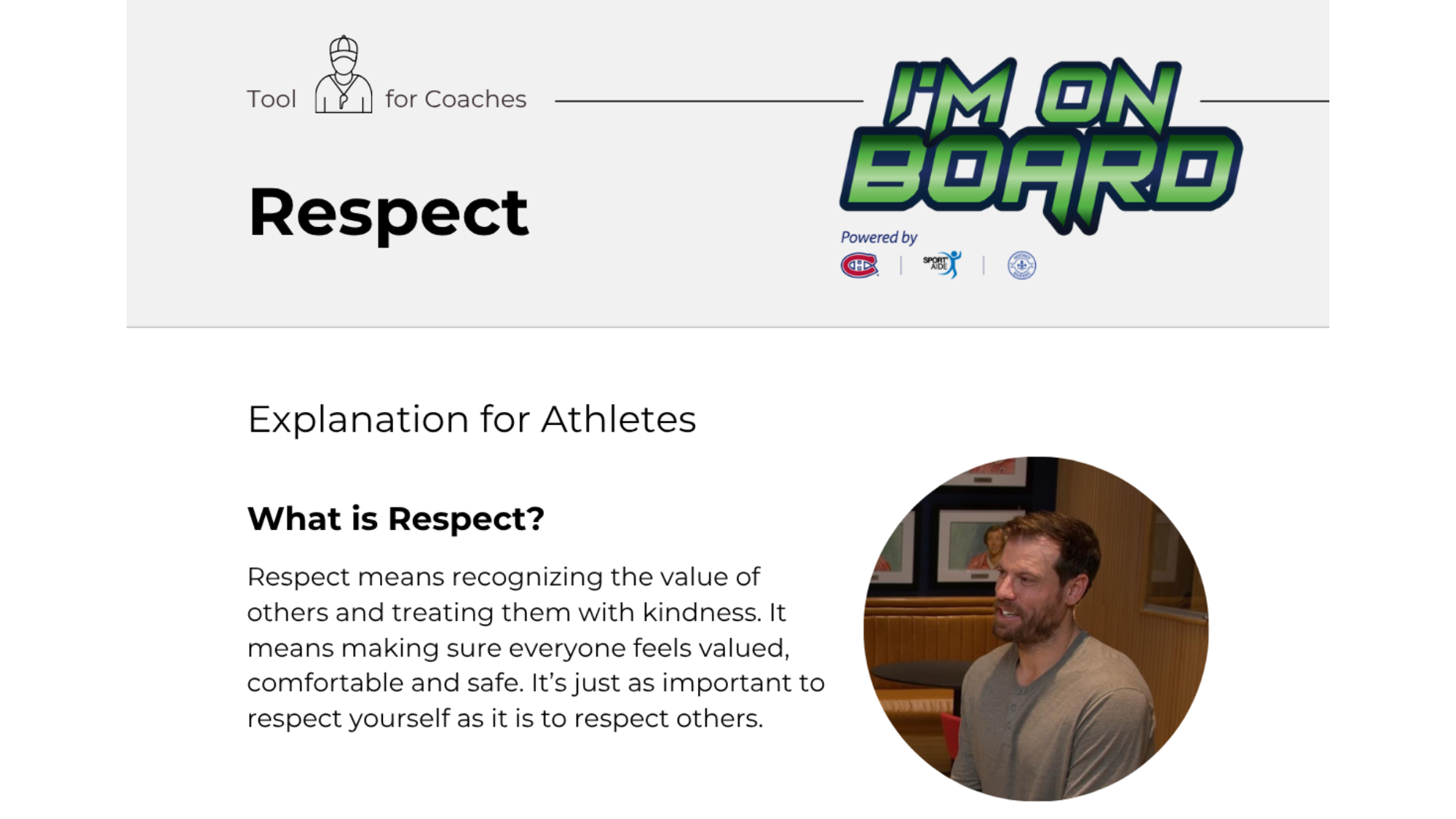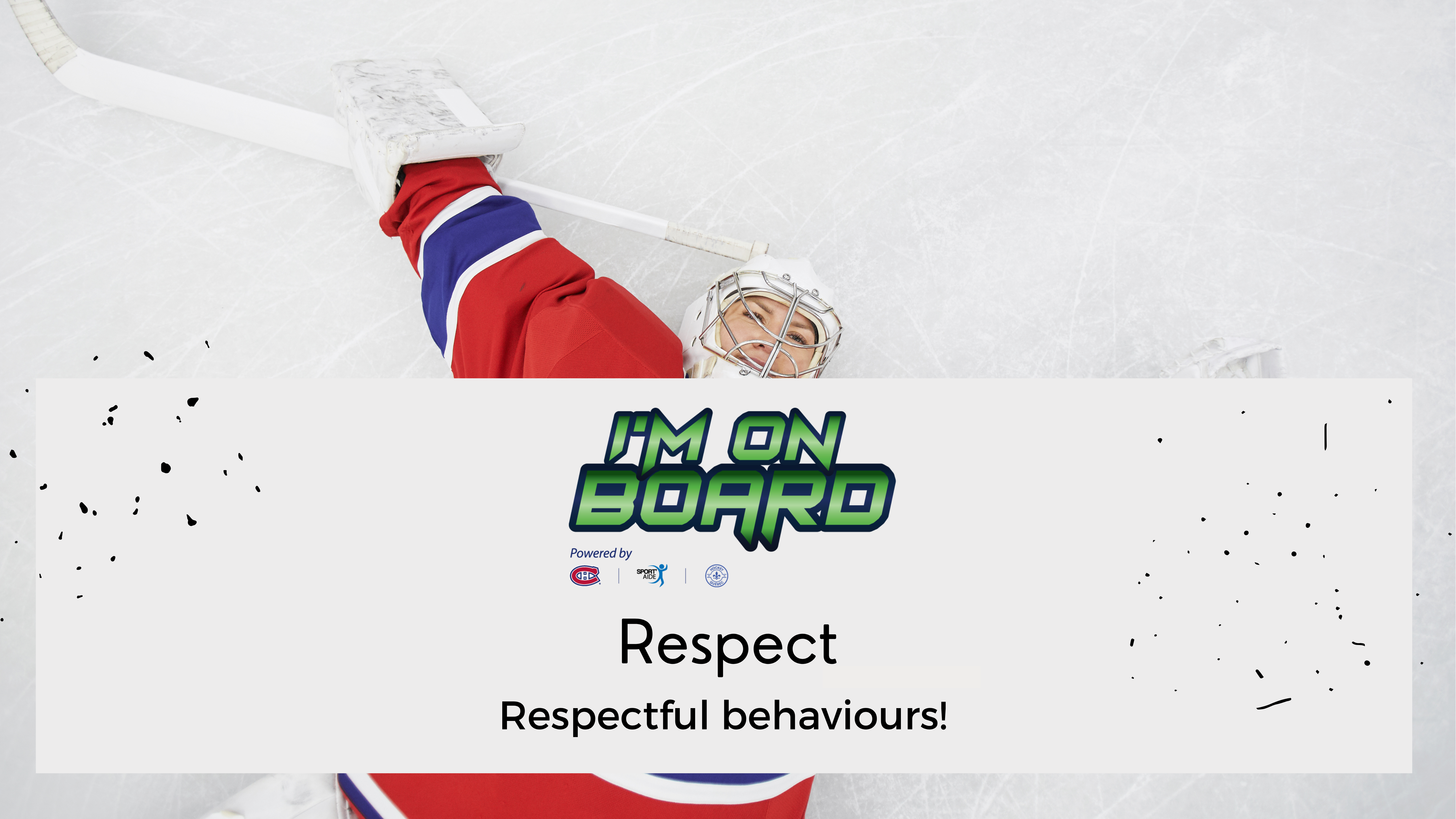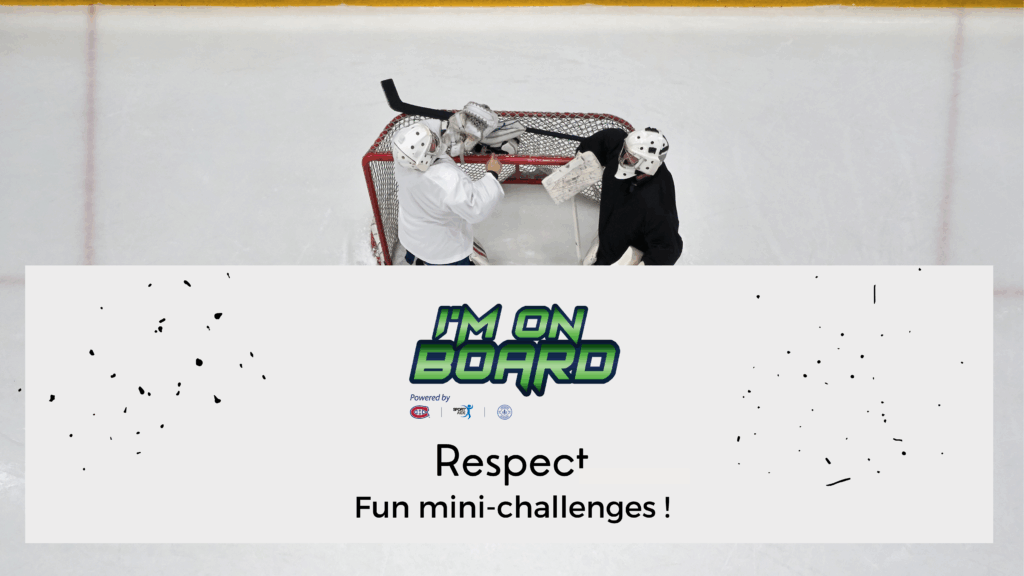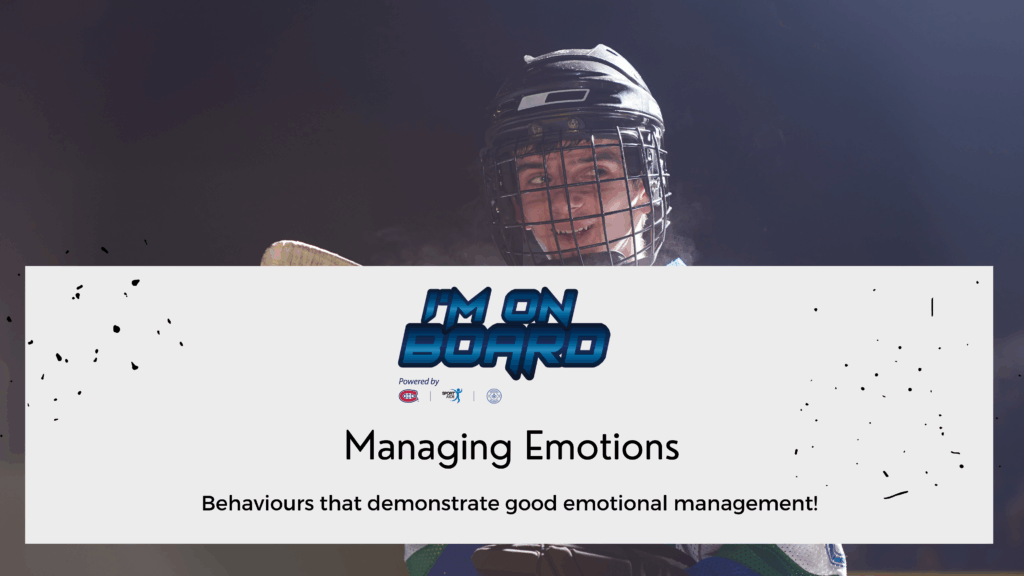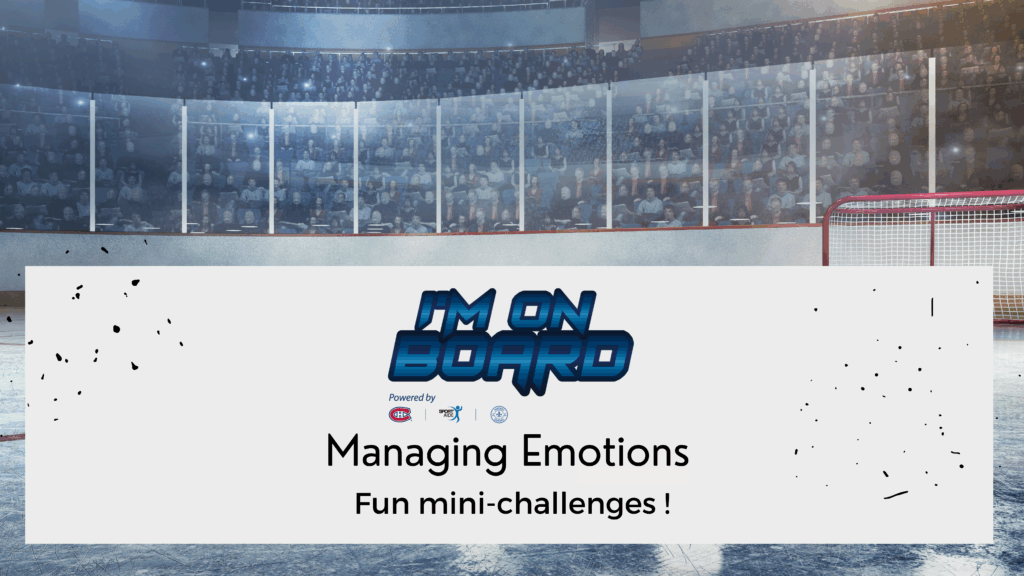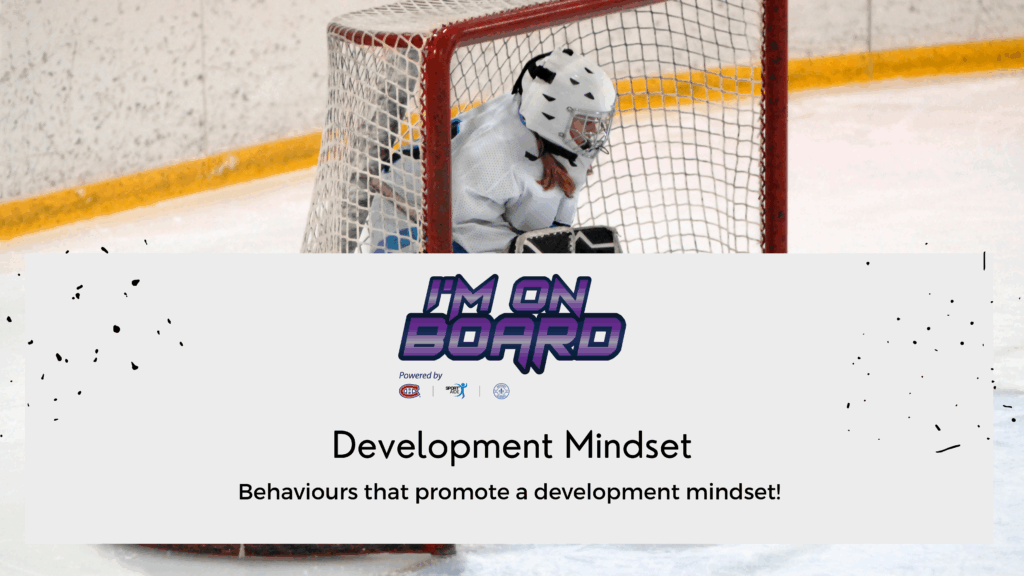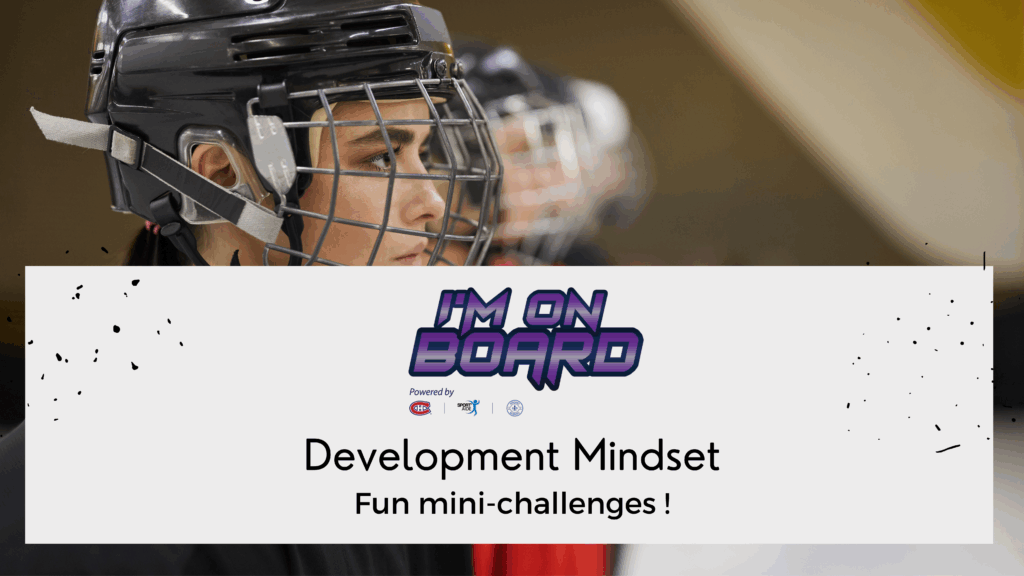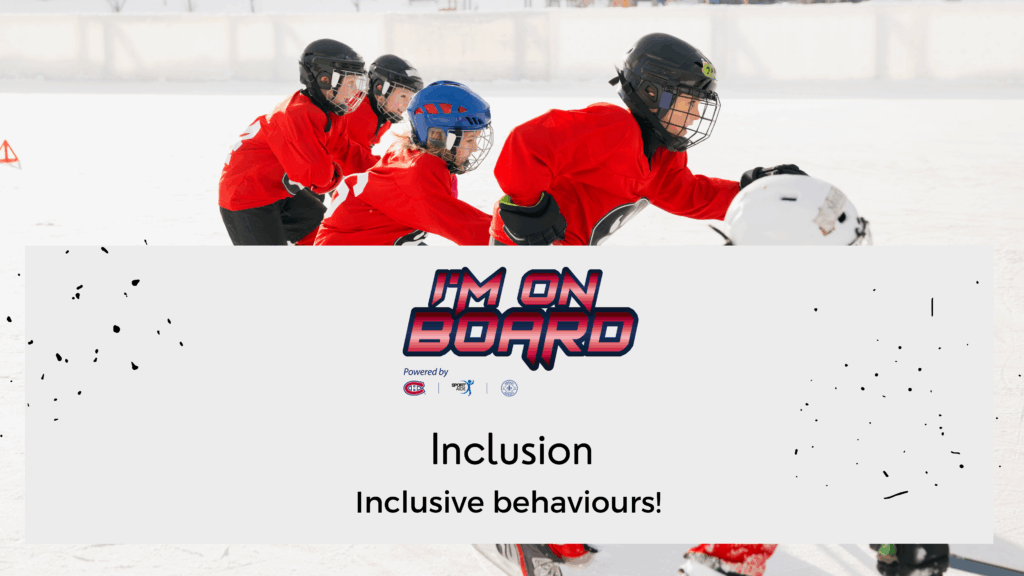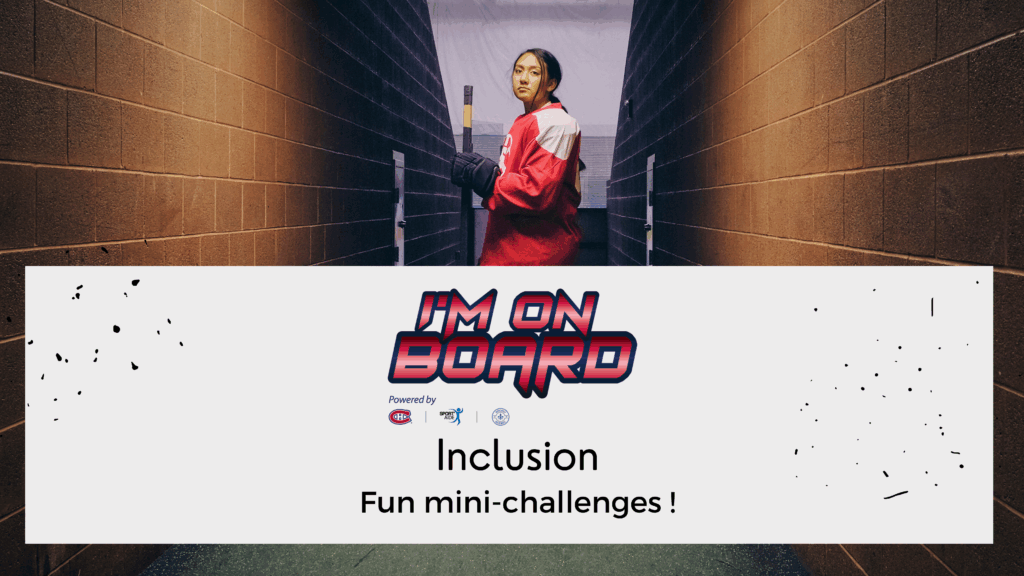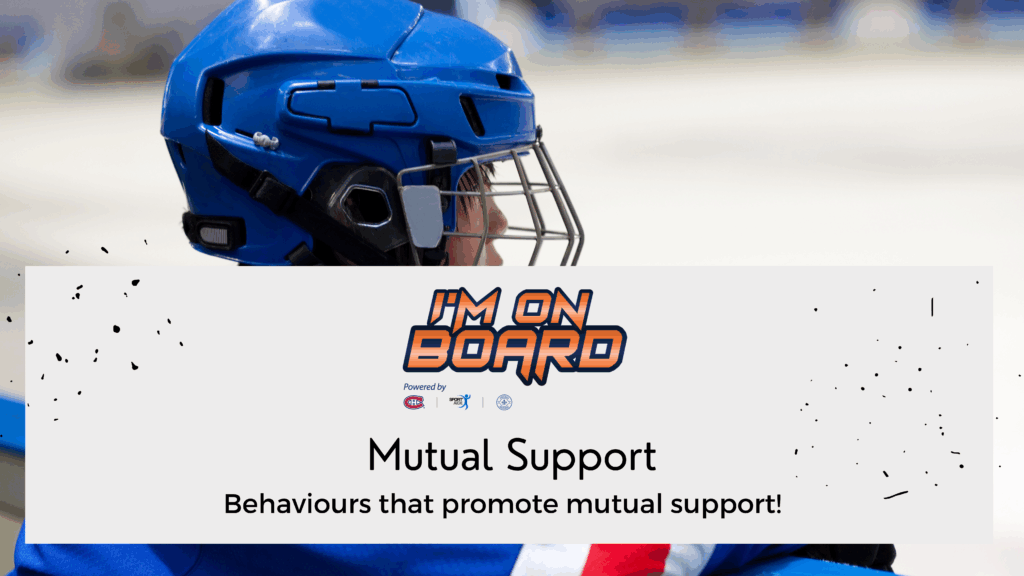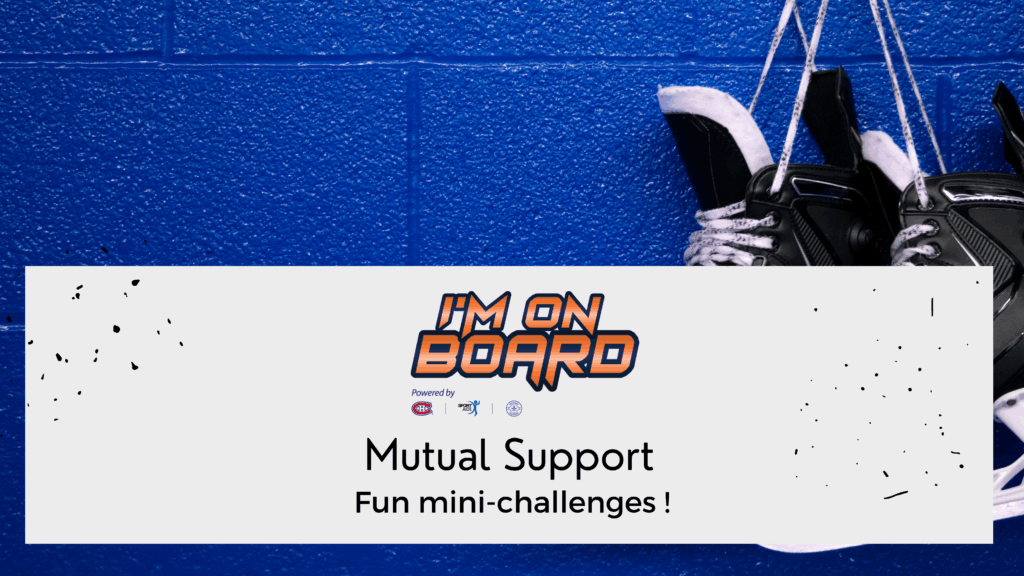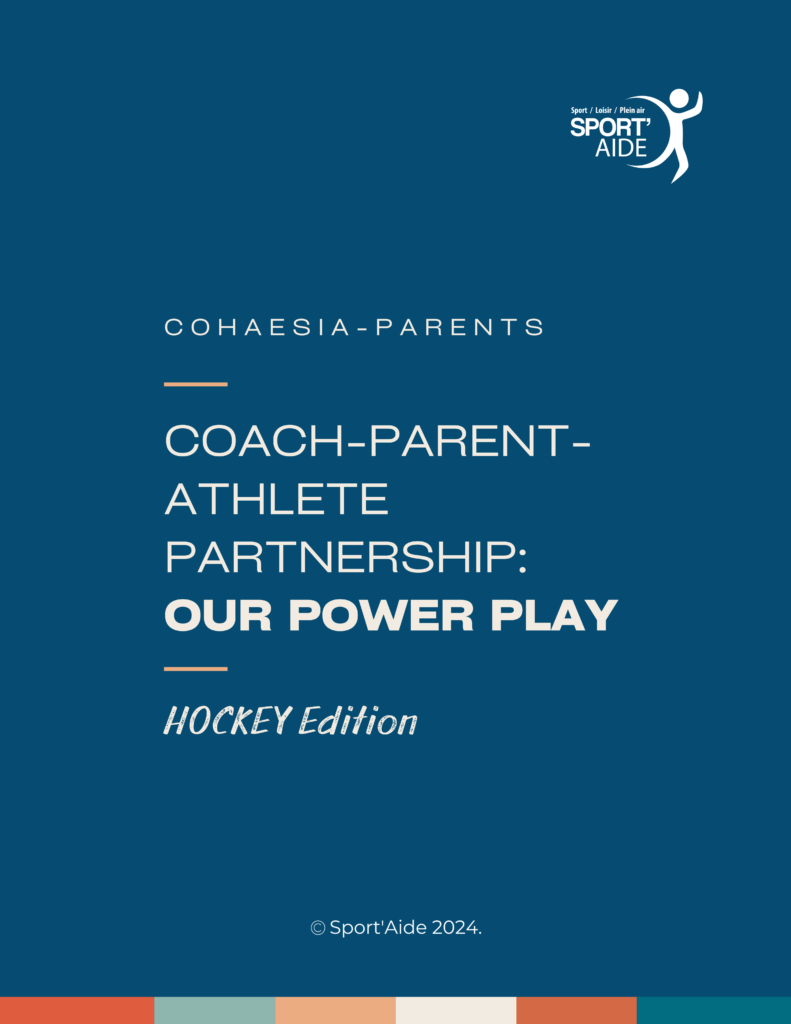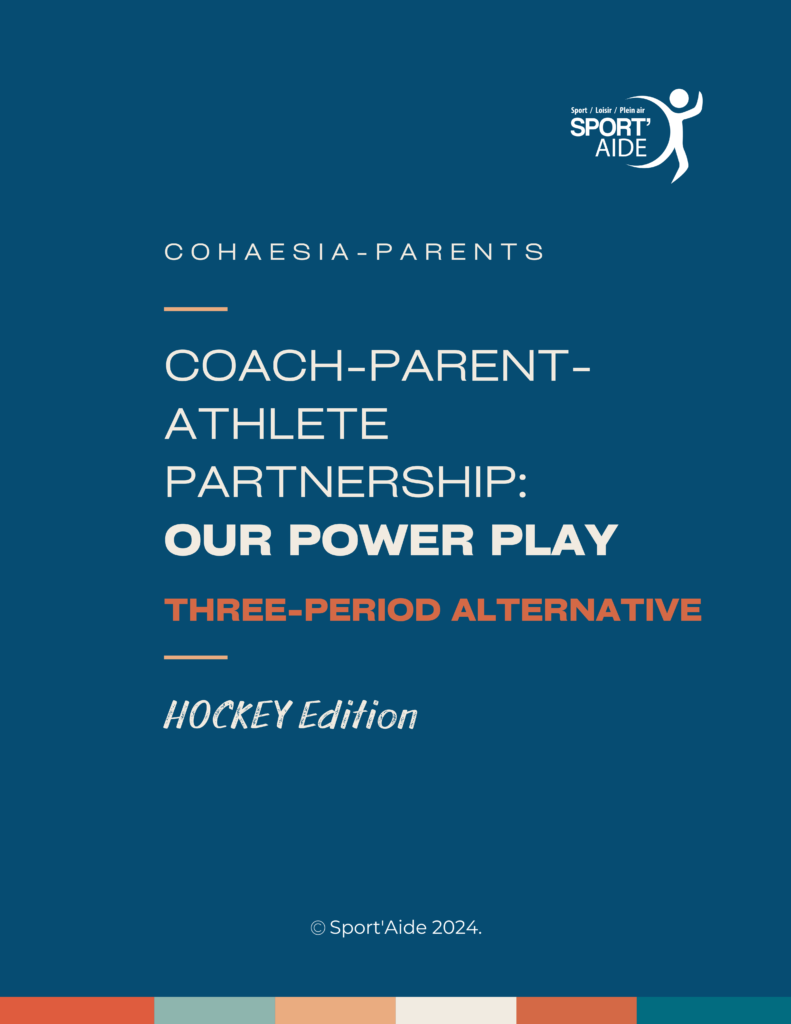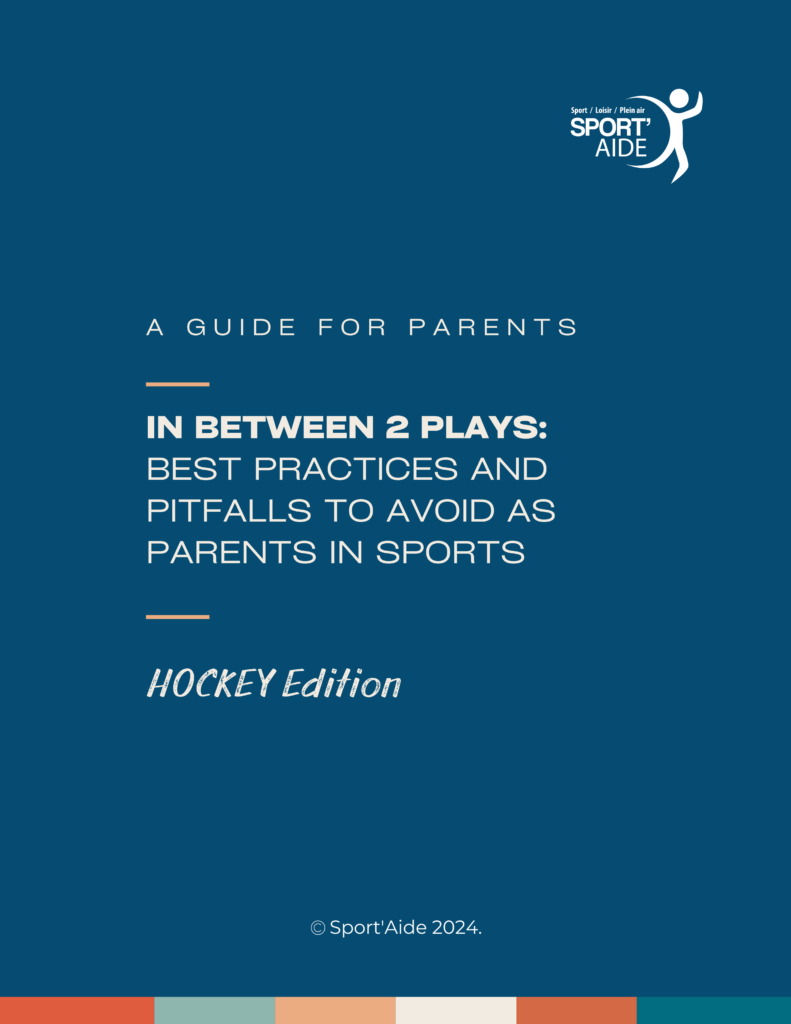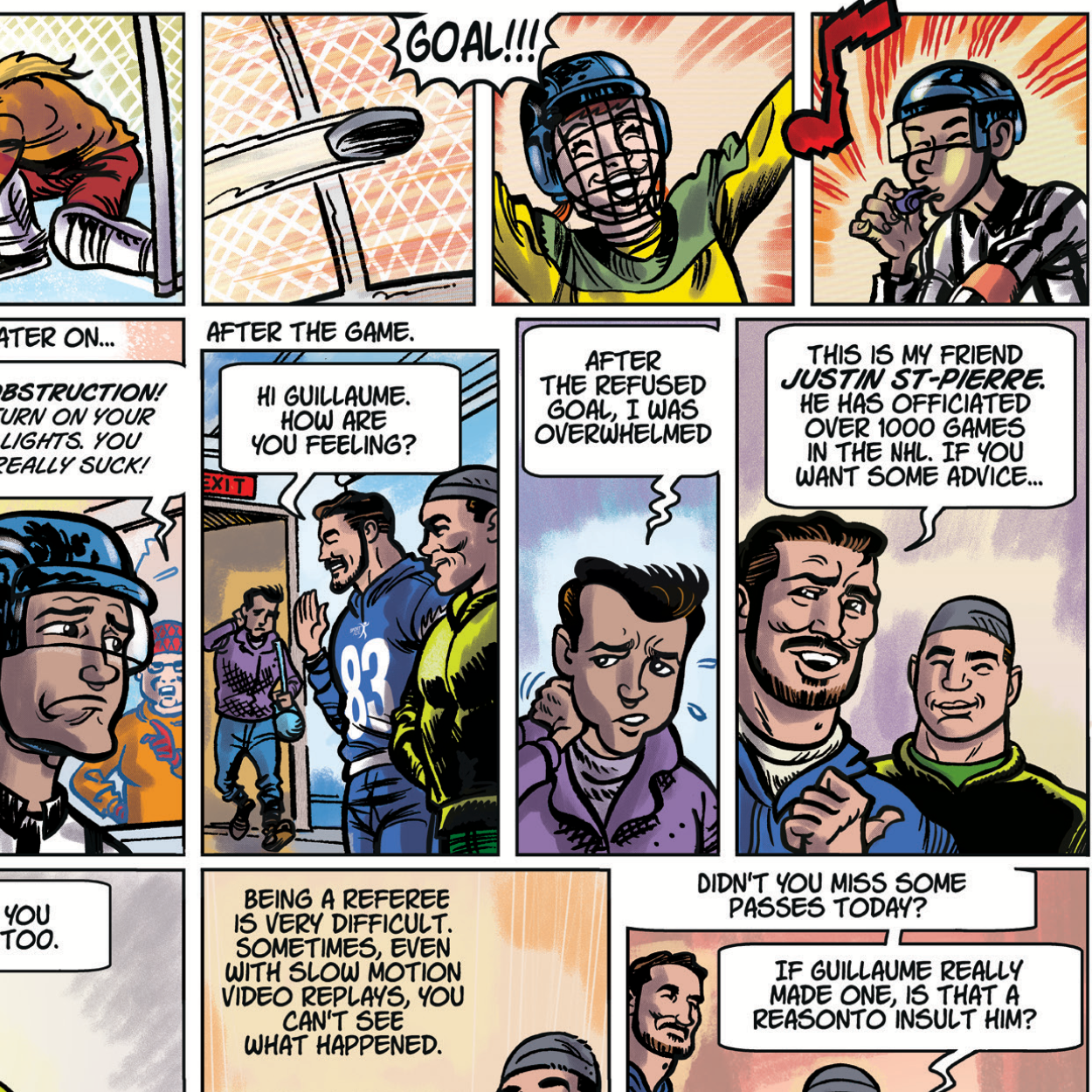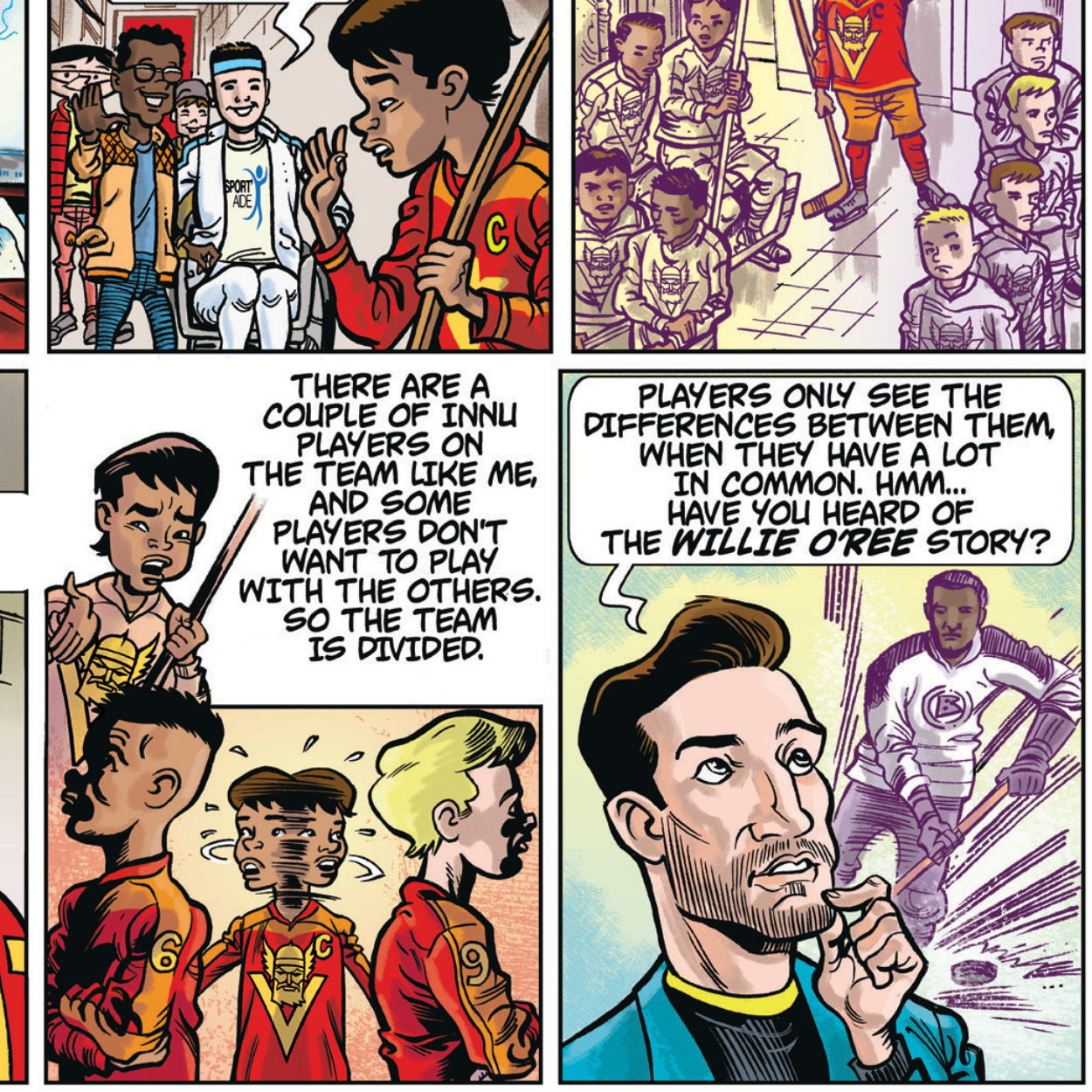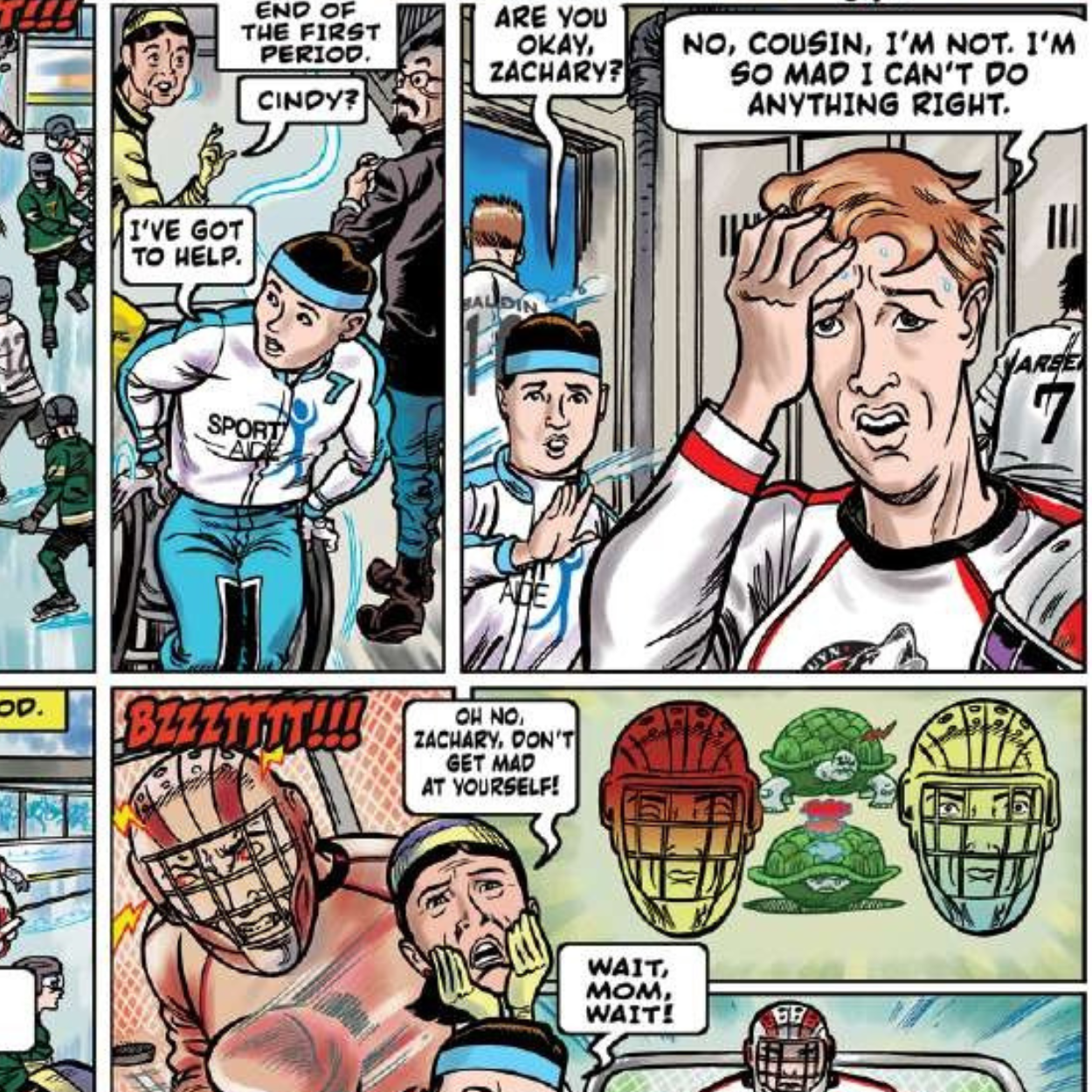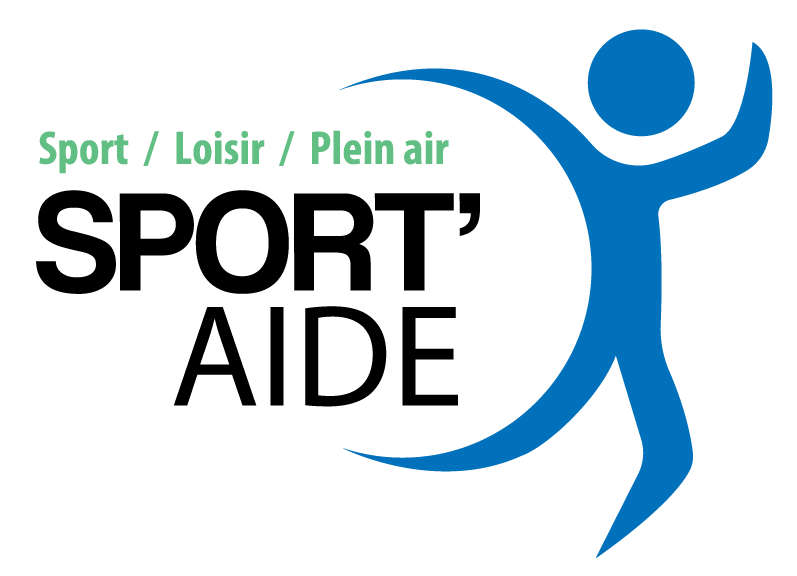
I’m on Board Coaches
About the Program
I’m on Board is a project run in collaboration with the Montreal Canadiens and Hockey Québec to promote a hockey culture in Quebec that combines well-being and performance. The Montreal Canadiens, Hockey Québec and Sport’Aide believe that the success of this program depends on teaching life skills such as respect, mutual support, inclusion and emotional management. These skills are at the heart of successful, cohesive hockey teams, but they ALSO enable people to flourish in other spheres of life, such as school, home and work.
Beyond performance, teaching these skills is also a good way of countering violence, exclusion and mental health issues (e.g., depression) in sport. Given the alarming situations reported in recent years in the hockey world, participation in the I’m on Board program is an opportunity for coaches and parents to take action on these issues and promote the well-being of our athletes.
Jean Béliveau: An Inspiring Role Model
I’m on Board was inspired by the great Jean Béliveau, a model for combining well-being and hockey performance. The life skills targeted in the program are based on the strengths and character traits that made “Jean” an exceptional leader both on and off the ice.
To pass on this legacy to the next generation, we’ve enlisted the help of renowned hockey icons who have mastered these skills. Through their testimonials, this generation can learn from role models who have made—or are still making—hockey a safer and healthier sport.
Watch this video to learn more about Jean Béliveau’s legacy (available in French with English subtitles).
How the Program Works
The program provides content for coaches and parents to teach kids life skills quickly and effectively on a daily basis. Coaches can attend a workshop to learn how to teach these skills through the program. These coaches also have access to personalized support to help them implement and adapt their interventions within their environment.
Important: The I’m on Board program is currently offered to M7, M9, M11, and M12 teams in the following regions: Gaspésie-Les Îles, Lac St-Louis, Québec-Chaudière-Appalaches, Richelieu and Mauricie. If you are in one of these regions, contact the person in charge of the program in your area to establish your action plan! For all other regions, feel free to reach out to us and we’ll guide you to the right resource!
- Gaspésie-Les Îles region : gli.moijembarque@sportaide.ca
- Lac St-Louis region : lsl.moijembarque@sportaide.ca
- Québec-Chaudière-Appalaches region : qca.moijembarque@sportaide.ca
- Richelieu region : r.moijembarque@sportaide.ca
- Mauricie region : m.moijembarque@sportaide.ca
- Other regions : info.moijembarque@sportaide.ca
Teaching Life Skills
Watch the videos below for the three main steps in developing your players’ life skills.
Note: To get I’m on Board reinforcement objects, please contact the program lead in your region.
Managing Your Emotions
Development Mindset
Inclusion
Mutual Support
Complaint Management Mechanisms and Sport’Aide Services
Consult this infographic created by Hockey Québec (available in French only) to better understand the mechanisms available for reporting a situation or lodging a complaint, depending on the problem. Whatever the situation, if you need help with this process, Sport’Aide is here to help.

Parents in Hockey
Cohaesia-Parents Approach – Hockey Edition
To make it easier for parents to participate in their child’s hockey experience, we’ve put together a guide to optimize your early-season meeting.
Refer to the guide “Coach-Parent-Athlete Partnership: Our Power Play” to learn more about the Cohaesia-Parents approach (hockey edition) and the activities offered to help build a partnership with parents at the start of the season.
Please note that the guide “Coach-Parent-Athlete Partnership – Three-Period Alternative” is an alternative to the standard guide, explaining how to offer activities at three different times, including during the first two tournaments of the season. Choose the option that works best for you!
Important: This guide is intended for coaches or anyone in charge of team operations (e.g., team manager). It sets out the steps in planning activities at the start of the season with parents and players.
Additional Resources
A Guide for Supporting Parents in Hockey
The guide “In Between 2 Plays: Good Practices and Pitfalls to Avoid as Parents in Sport” teaches parents best practices to adopt and pitfalls to avoid in order to create a positive experience for their child.
Tips for Making the Most of This Guide:
- Share the guide during the first few weeks of the season, either in full or section by section. Choose the approach that will be most motivating and engaging for the parents on your team.
- Familiarize yourself with the best practices and common pitfalls outlined in the guide to help spark meaningful conversations with parents.
- Regularly remind parents, both verbally and in writing, to check out the different sections of the guide.
- Share the guide overview to reach as many parents as possible — including those who are harder to engage (e.g., due to lack of interest or limited time)!
Going a Step Further
Podcasts
Here are some podcasts featuring hockey icons who are also part of the I’m on Board movement (available in French with English subtitles). They talk about the skills for success, all the while keeping the player’s well-being and love for hockey front and centre.
To inspire your coaching practices, listen to podcasts while on the road. Do you have to take your team on the road? Why not take the opportunity to listen to a podcast with your athletes and discuss how you can improve the experience in your team?
See what other public figures have to say about their sports experience and the world of hockey (available in French only).
Comics
Here are some comic strips to help you get to grips with the different themes of the I’m on Board program. Share them with your athletes or post them in your sports facilities!
